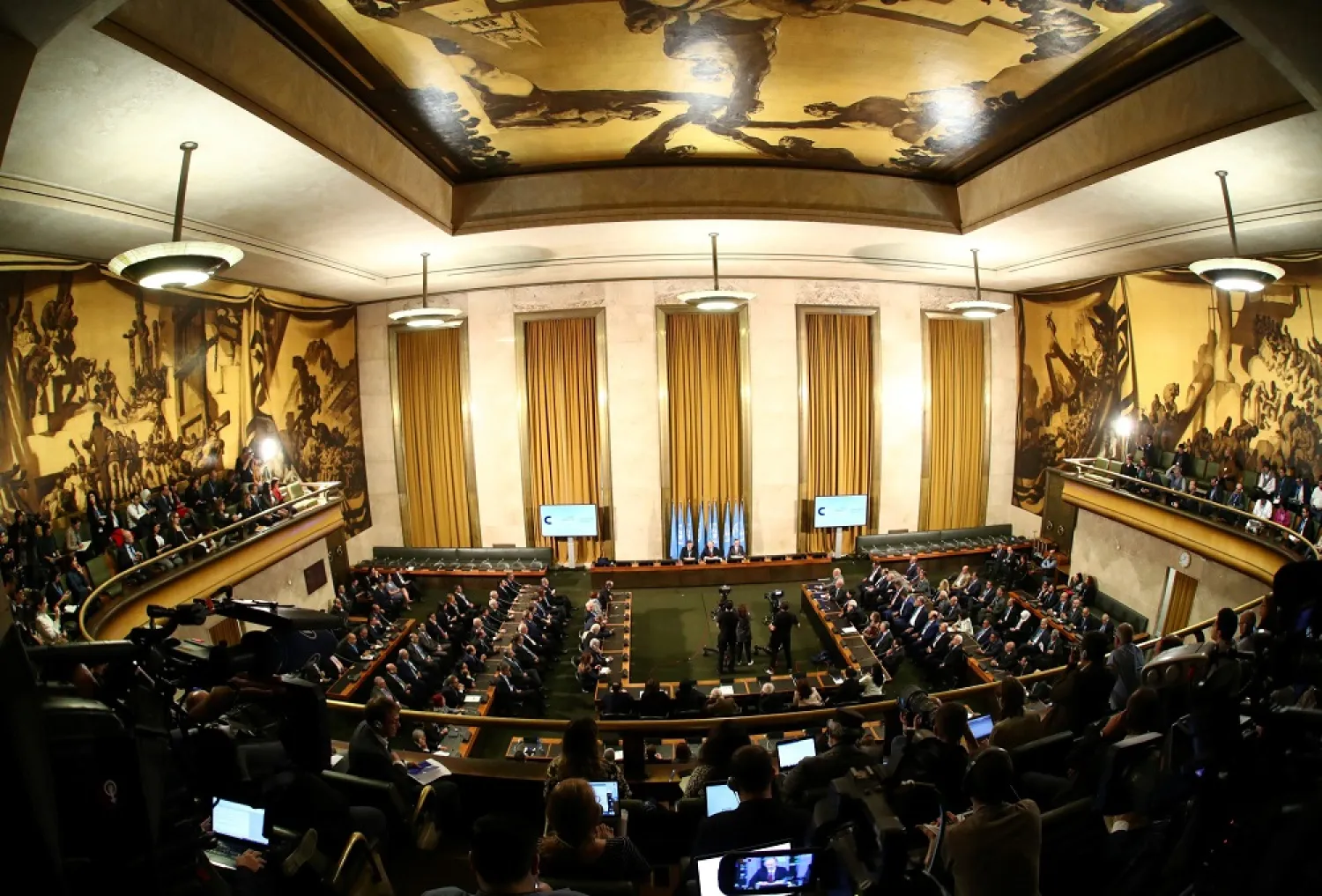Once again, the Syrian Constitutional Committee is at a crossroads. Once again, United Nations special envoy Geir Pedersen is arming himself with diplomacy in order to achieve a “political breakthrough” amid contradicting priorities between the government and opposition delegations. These efforts are all the more significant as the United States approaches its November 3 presidential elections.
The third round of the Constitutional Committee talks were held on August 24, nine months after the second round. The latest talks ended without an agreement being reached over the schedule of the next round that was “ambitiously” expected to be held in Geneva on Monday.
Sights have since been turned to the “Russian sponsor”, with its political wing in the foreign ministry and its military wing at the defense ministry, to preserve the political course at the committee talks. These “ambitions” increased when Foreign Minister Sergei Lavrov traveled to Damascus where he expressed his “disappointment” with the pace of the committee’s work. He had agreed with Damascus’ position that the presidential elections will be held on time in mid-2021 according to the 2012 constitution. He added, however, that the elections should be separated from the Constitutional Committee talks.
At this, expectations were high that Damascus would translate the “Russian advice” into an agreement on the agenda of the next Constitutional Committee meeting, with the hopes that three such meetings would be held before the end of the year.
On the table were two options: That the next round be divided into discussions on the “national principles”, as demanded by the government delegation, and discussions on the introduction of the constitution, as demanded by the opposition High Negotiations Committee. The second option was for the fourth round of the talks to tackle the “national principles” and that the fifth and sixth rounds address the introduction of the constitution.
Head of the government delegation, Ahmed al-Kuzbari, however, has stressed the need to dedicate more time to discuss the “national principles” without a set deadline and without foreign interference. Observers said that Damascus considers the constitution a “fateful issue that has only grown in importance in wake of the experiences in Iraq and Lebanon. This means that the drafting of the constitution should not be rushed in order to avoid possible loopholes that could be abused in the future. The national principles must be addressed and they must include clear positions on occupations, terrorism and Syria’s unity and sovereignty.”
Damascus believes that the UN team must keep up its efforts to “facilitate” the work of the Constitutional Committee and sponsor intra-Syrian dialogue. It must highlight the “accomplishments” that have been achieved, such as the formation of the Committee, the agreement on operational regulations, the holding of the three rounds of talks and the participants’ near agreement on the “national principles”. Moreover, the government views the Constitutional Committee as an “independent sovereign entity” that Moscow, Damascus and Ankara, which backs the High Negotiations Committee, are not involved in.
On the other end, the High Negotiations Committee and the head of its delegation, Hadi al-Bahra, believe that Damascus’ plan is based on “biding time or pushing the opposition to assume the responsibility of failure or pushing Pedersen to resign.” It is therefore, maintaining a “delicate balance” of avoiding being blamed for failure and offering suggestions in order to delve into work on the core of the constitution or at least, its introduction. At this, the proposal to hold separate negotiations emerged: The first to tackle the “national principles” and the second to address the introduction of the constitution. In the meantime, the opposition has turned to its western allies to demand that they resort to the UN Security Council to urge it to issue a resolution or statement based on resolution 2254 to specify a deadline for the Constitutional Committee’s work.
Some western countries, especially the US, are not ruling out this option, which they could use to pressure the negotiators. It wants to explicitly name names before the Security Council and pin blame on those who are obstructing the constitutional path.
Russia, meanwhile, is pleased with the work of the Constitutional Committee, even if it is seeking a faster pace of work. It believes the committee work is the beginning of the implementation of resolution 2254, even if proceedings may take years. It has clearly stipulated to western powers that it will not allow other options to implement the resolution. Moreover, some officials in Moscow and Damascus have warned that American and European sanctions may only increase the obstacles facing the Constitutional Committee.
Amid these tensions between the Americans and their allies and the Russians and their partners, talk that the constitutional path is “independent and purely Syria” or that the committee is a “sovereign entity” could not be any farther than the truth. This explains why the players want the path to remain restricted to UN sponsorship in Geneva, while international and regional understandings can be reached and presented at the Syrian table.














